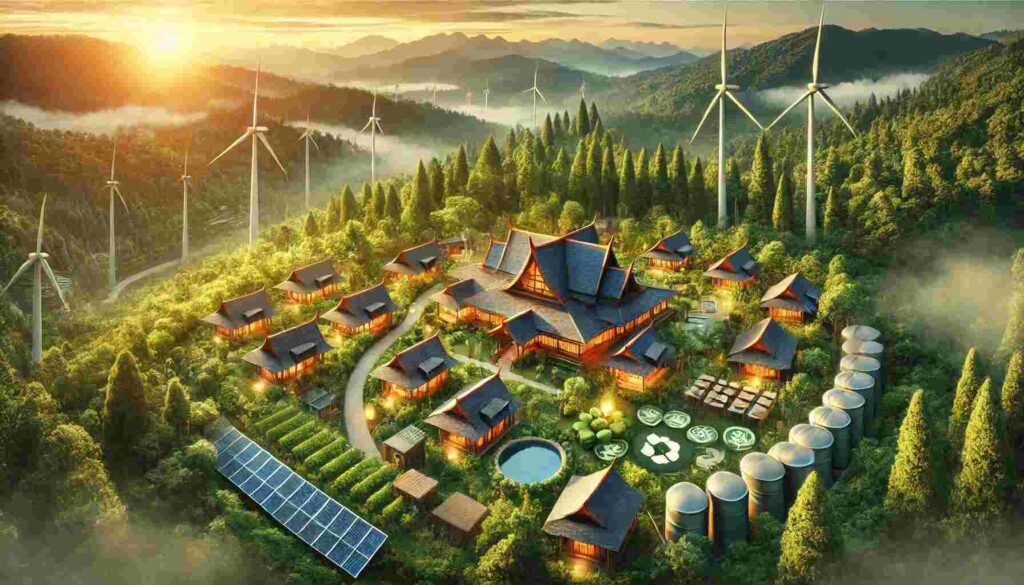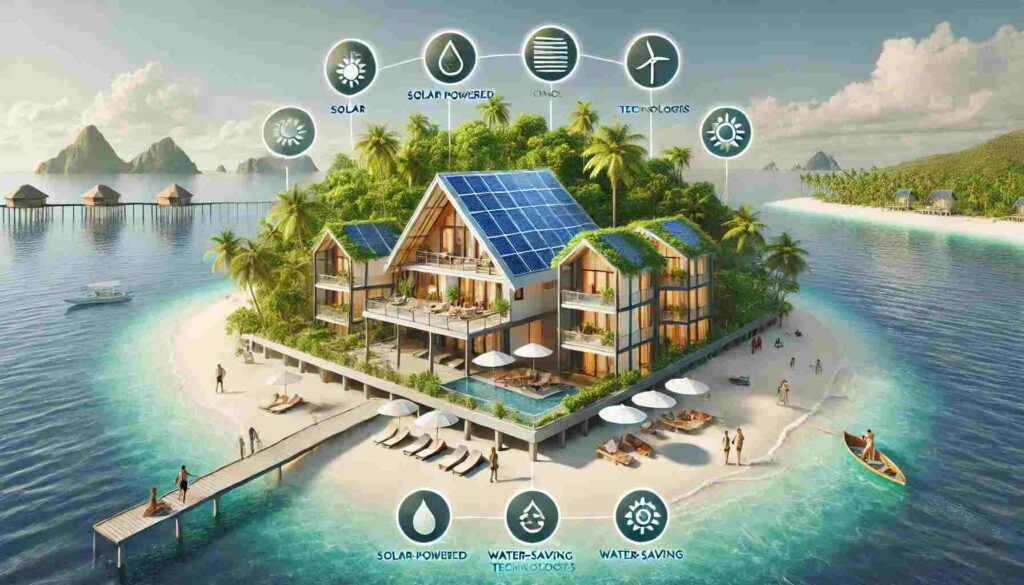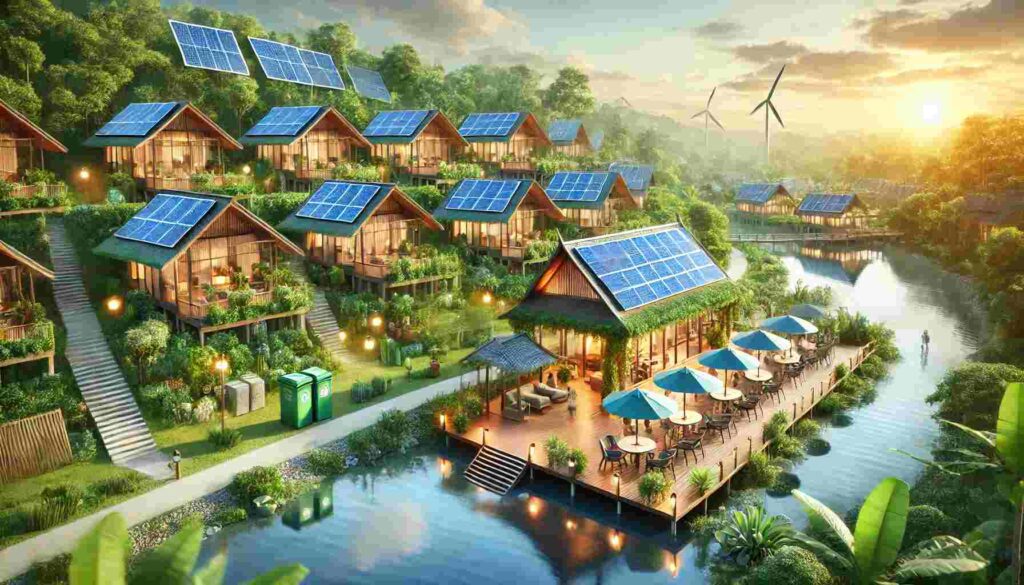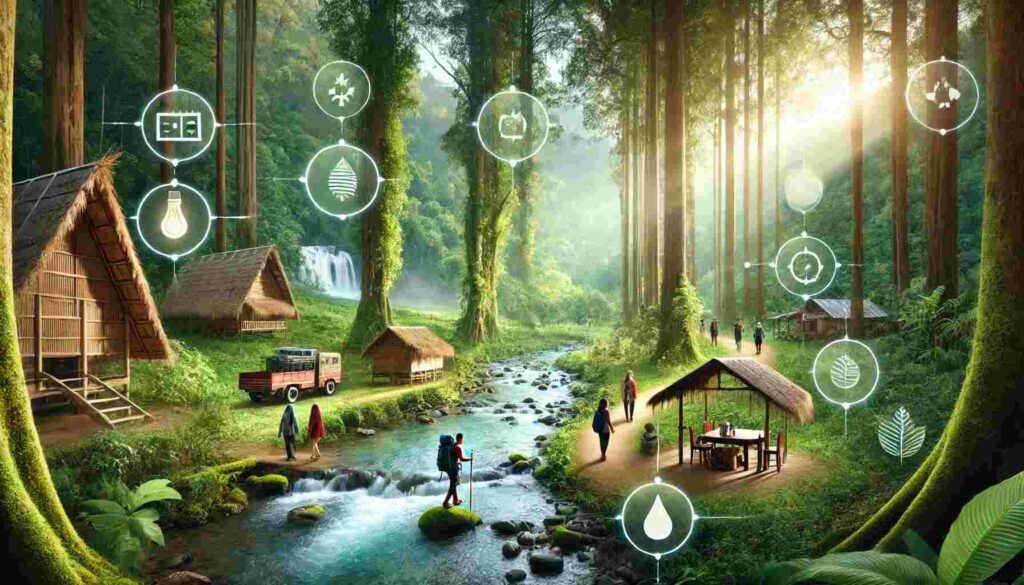As environmental concerns grow and travelers become more conscious of their ecological impact, the tourism industry is also evolving to meet the demand for sustainability. Eco-friendly resorts are a significant part of this transformation. These accommodations are designed to minimize environmental harm, reduce waste, and promote a healthier relationship with the natural world. But beyond being just a trend, staying in eco-friendly resorts can have a long-lasting, positive impact on the environment, local communities, and your overall travel experience.
In this article, we’ll explore what makes a resort eco-friendly, the key benefits of choosing such accommodations, and why making this choice is crucial for both travelers and the planet.
What Are Eco-Friendly Resorts?
Before diving into the importance of staying in eco-friendly resorts, it’s essential to understand what qualifies a resort as eco-friendly. These accommodations prioritize sustainability in all operations, from energy use to waste management and support for local communities. Here are some standard features of eco-friendly resorts:
Sustainable Energy: Many eco-friendly resorts use renewable energy sources like solar or wind power to reduce reliance on fossil fuels.
Water Conservation: These resorts implement water-saving systems such as rainwater harvesting, recycling, and low-flow fixtures to minimize water usage.
Waste Management: Eco-resorts emphasize recycling, composting, and reducing waste, especially single-use items.
Eco-Friendly Construction: The resort’s design and construction often use sustainable materials like bamboo, reclaimed wood, and natural stones.
Support for Local Communities: They often employ local staff, source local products, and support community initiatives, ensuring that tourism benefits the surrounding area.
Conservation of Wildlife and Natural Habitat: Eco-resorts often take steps to protect the surrounding environment and wildlife by minimizing disruption and maintaining natural landscapes.

Why Is It Important to Stay in Eco-Friendly Resorts?
Reducing Your Carbon Footprint
Staying in an eco-friendly resort is one of the most important advantages as it decreases your carbon impression. Tourism produces significant greenhouse gas emissions, mainly from transportation and energy consumption. Historic resorts sometimes burn fossil fuels to heat water, resulting in pollution. On the other hand, eco-friendly resorts generally run on solar, wind, or hydroelectric power and, therefore, have a much smaller carbon footprint.
An eco-resort, for instance, would not depend on coal-fired electricity and could have solar panels on the roofs to produce clean energy. This switch not only helps reduce harmful emissions but also facilitates the usage of renewable energy. By staying at such resorts, you support climate change combat’s cause.
Promoting Water Conservation
One of the world’s scarcest resources is water, which can be easily overused in tourism, resulting in water shortages — especially where regions suffer from scarcity. These days, a lot of resorts, especially the traditional ones) consume vast amounts of water for guest facilities such as pools, spas, and gardens, and they do so with little or no regard for sustainability. On the other hand, eco-friendly resorts use less water through measures like rainwater harvesting, low-flow showerheads, and water recycling systems.
Some hotels treat and reuse purified water for non-drinking purposes, such as gardening and washing. This minimizes water loss and leaves some water for local communities and ecosystems.

Supporting Local Economies
Eco-friendly resorts usually focus on sourcing locally and hiring local employees while backing community-based endeavors. So this also means that when you stay in an eco-resort along the coast, not a penny will support large multinational corporations. Specialty resorts also work with local artisans, farmers, and service providers to preserve local culture and traditions.
For example, an eco-resort could work with local farmers to provide organic, locally sourced foods instead of shipping food from hundreds of miles away. The aim is to provide fresh, sustainable food while giving local farmers work to support their families.
Preserving Wildlife and Ecosystems
Some eco-lodges may cater to eco-tourists because they are near protected areas, and limited access to the lodging helps people feel like they can have meaningful interaction with nature. This occurs through their killing of native bats and the vegetation destruction they create, which is crucial both in maintaining biodiversity and also as this plant life provides food staples that sustain competent tourism. Eco-resorts usually do their best to avoid disturbing any nearby wildlife or ecosystems. They could volunteer for local conservation initiatives, plant trees, or protect rare wildlife.
Sometimes, lodging places can be near marine life while partnering with local groups to maintain coral reefs and other aquatic ecosystems. They can ultimately provide guests with eco-focused activities like snorkeling tours, explaining to vacationers the significance of protecting reef systems during these excursions. These conservation efforts need other means, and by choosing eco-friendly resorts, you are indirectly helping achieve these results.
Reducing Waste
The tourism industry produces tremendous waste — from throwaway food to single-use plastic. Traditional resorts, on the other hand, can create tons of trash that just goes to the local landfills and causes pollution. Eco-resorts, on the other hand, claim to follow the waste reduction, reuse and recycle hierarchy. This includes eliminating plastic water bottles instead of refillable alternatives, utilizing food waste for composting, and disposing with biodegradable cleaning products.
Even more ambitious eco-resorts aspire to be zero waste, committed to every single piece of trash avoiding its final resting place in a landfill. They may use digital receipts instead of paper ones, for example, and have replaced disposable cutlery with either compostable or reusable options. Plus, they encourage customers to pitch in with their recycling programs.
Enhancing Your Travel Experience
Eco-friendly resorts often offer unique experiences that differ from traditional resorts. Rather than focusing solely on luxury or convenience, these resorts prioritize nature and sustainability, allowing guests to connect more deeply with their surroundings. This might include guided nature walks, visits to local villages, workshops on sustainability, or even opportunities to volunteer in conservation projects.

Setting an Example for Future Travel
It says that sustainability matters to the tourism industry. When you make eco-safer resort choices, your Save Earth contribution goes toward those actions, too. The trend will hopefully prompt other resorts to take steps towards sustainability as more travelers continue demanding eco-friendly lodging. Your decision has a ripple effect and impacts industry patterns, eventually pushing the world toward a more sustainable future of global travel.
This will help fuel the tourism industry down the path that we want it to take holding all businesses accountable for their environmental sustainability while lightening the way for future travelers.
Key Features to Look for in an Eco-Friendly Resort
Certification: Look for resorts with eco-certifications from recognized organizations like Green Key, EarthCheck, or LEED (Leadership in Energy and Environmental Design). These certifications indicate that the resort meets specific sustainability standards.
Energy Efficiency: Check if the resort uses renewable energy sources such as solar, wind, or geothermal. Energy-efficient lighting, heating, and cooling systems are also a good sign.
Water Conservation: Check to see if the resort has water-saving features, such as low-flow fixtures, rainwater harvesting systems, or water recycling for irrigation.
Waste Management: A good eco-resort will have a robust waste management program, including recycling, composting, and minimizing single-use plastics.
Support for Local Communities: Look for resorts that actively contribute to the local community, such as hiring local staff, using locally sourced products, and supporting local conservation or social initiatives.
Conservation Initiatives: Resorts involved in wildlife protection, habitat restoration, or environmental education are positively contributing to preserving nature.
Eco-Friendly Materials: Resorts that use sustainable building materials, such as bamboo or reclaimed wood, show a commitment to reducing environmental impact during construction

Conclusion
Choosing an eco-friendly resort makes a lot of sense and is rewarding for both the earth and the travelers. The Discover Green list highlights resorts that allow you to immerse yourself in nature, give back to local communities, or lower your environmental impact while enjoying a little pampering on your vacation. Sustainable tourism is vital to preserving our natural wonders for future generations and promoting a future we can all be part of and enjoy.
However, we, too, as travelers, can influence the future of tourism. By staying in eco-friendly resorts, we can save the environment, provide jobs for local people, and set examples for others. The next time you start planning your getaway, remember what Eco-Friendly Resorts can deliver and how they can lead to a greener future in travel.



